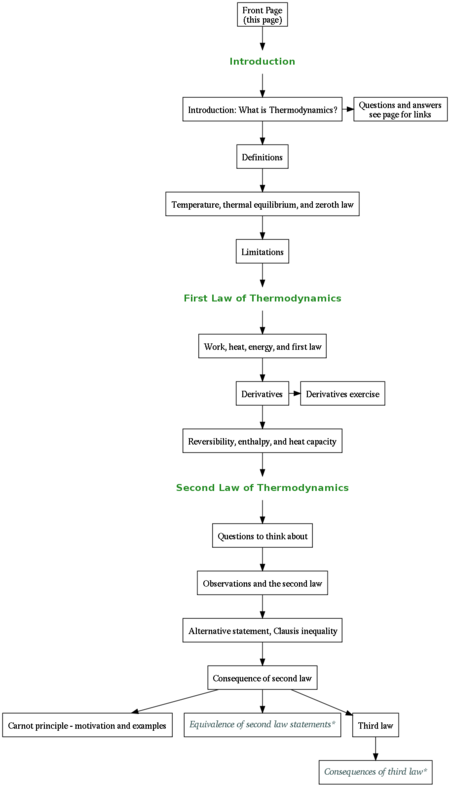Thermodynamics
Thermodynamics
Importance
Thermodynamics is an important part of physics, chemistry, and engineering. Therefore, it is a critical area of study for those in science and technology. Thermodynamics also finds importance in ecology, energy, and other studies. In addition analogous concepts (especially those analogous to entropy) are used in information theory/computer science and even social sciences.
This Project
This project is to teach this important subject. It is a work in progress and will be expanded as time goes on. At this time there is coverage of the first law and the second law and the beginning in the development of thermodynamics (the "thermodynamic network"). In the future there will also be further development of thermodynamics and applications. Feel free to visit the site frequently.
This project is designed for multiple levels - in other words, it will be flexible enough that it can be used by those with little math, intermediate level students, and by college level students.
Sections labeled ...(simplified) are sections that require only algebra. Most other sections require only basic calculus (high school level should be sufficient).
Some optional sections may, however, require more advanced math, but none should be above an undergraduate level.
Some sections will be optional. They may be omitted. The exception to this are some optional sections that may require another optional section.
| Teach the important field of thermodynamics
Show applications of thermodynamics to a wide range of fields of study Have a flexible approach that can be used at various levels Help students develop their problem solving skills |
Course Sequence
Below are diagrams showing the different sections and how they are related to each other. The first diagram is the main sequence. The second diagram is a sequence for those without a calculus background.
Note that this only includes the introduction and the laws of thermodynamics. It will expanded as the project is further developed.
For links for all the sections, use the navigation box at the top of this page.
Let's Go
| Work in progress, expect frequent changes. Help and feedback is welcome. See discussion page. |

